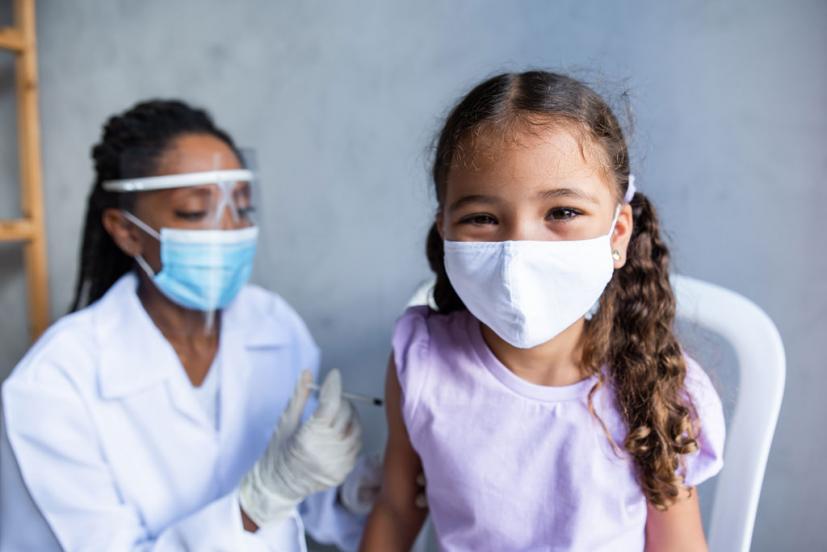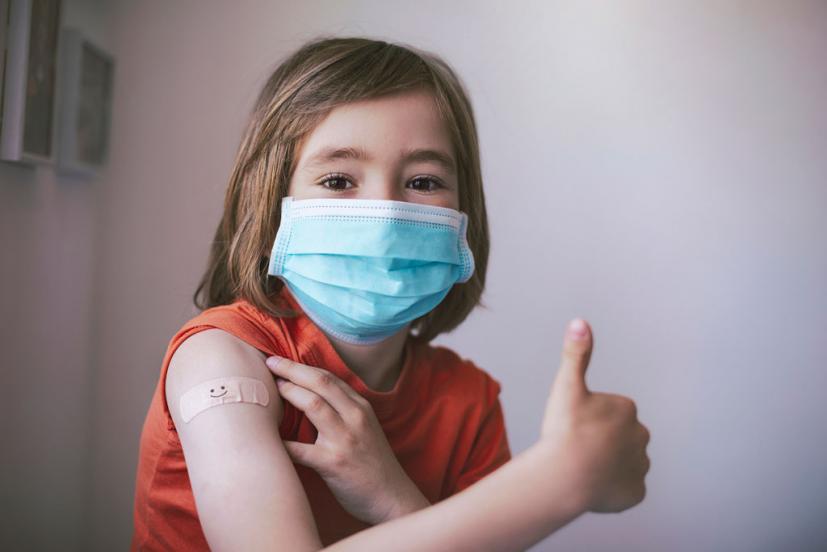The Pediatric COVID-19 Vaccine: Q&A with Dr. Karin Shavelson

Marin Mommies presents a sponsored article from MarinHealth®.
When it comes to advising parents about the pediatric COVID-19 vaccine, Karin Shavelson, MD, FAAP, Chief Medical Officer at MarinHealth®, has the ideal expertise. She joined MarinHealth in 2019 as the Medical Director of the Pediatric Hospitalist Group and has more than 15 years’ experience as a board-certified pediatric hospitalist, and has been one of the leaders of MarinHealth's COVID-19 pandemic response. We asked her some of the most common questions about the pediatric COVID-19 vaccine.
What is MarinHealth’s recommendation regarding kids and the COVID-19 vaccine?
In agreement with the Centers for Disease Control and Prevention (CDC) and the California Department of Public Health, we absolutely recommend that children five and older be vaccinated. We have been vaccinating children ages 12 and older for several months. On November 2, the CDC issued a recommendation that children 5 to 11 years old be vaccinated against COVID-19 with the Pfizer-BioNTech pediatric vaccine.
Right now, the only COVID-19 vaccine approved for youngsters is Pfizer. Will that change? Is there any reason to wait for another vaccine for kids?
Other COVID-19 vaccines are definitely being tested for use in children; however, there is no reason to wait. In fact, time is of the essence as we approach the holidays. Many children will be going to indoor events, traveling, and visiting family. The odds of their being exposed and spreading the virus will be much higher. I recommend vaccinating your child as soon as possible.
The recommended dosage is two shots, three weeks apart. Do you anticipate the need for boosters after that?
We don’t have all the data yet so we can’t say for certain. What we do know is that the pediatric immune system appears to be behaving the same ways as the adult immune system. That would indicate that yes, boosters may be needed in the future, but we just don’t yet have the data to make that call.
I heard that some children may need an additional dose for medical reasons.
Yes, children 12 and older who are immunocompromised because of cancer or certain medical conditions, such as type 1 diabetes, may need an additional dose. However, this depends on the child’s medical condition and general health. It’s a very individualized decision that you should discuss with your child’s healthcare provider.
Where can I get my child vaccinated?
Marin County has a robust vaccine infrastructure. Some schools are offering the vaccine on-site. Marin County Public Health is partnering with Safeway Pharmacies to offer “Pediatric Supersites” that can vaccinate as many as 1,000 children a day. Pediatric vaccines are also available at some of Marin County’s pop-up locations, certain pharmacies, and some pediatricians’ offices. Not all pharmacies offering the Pfizer vaccine are vaccinating children ages 5–11, so check online. The best place to get specific information is on the Marin Health and Human Services website.
What are the possible side effects of the Pfizer-BioNTech COVID-19 vaccine in younger children?
Potential side effects are similar to those experienced by people ages 12 and older. Their arm will typically be sore where the shot was given. You might see some fatigue, or flu-like symptoms like fever, headache, chills, and muscle pain. Some people have nausea or a decrease in appetite.
As with adults, side effects tend to occur within two days after vaccination and last one to three days. They are more common after the second shot. Anecdotally, some physicians are noting anxiety symptoms such as an increased heart rate and lightheadedness—probably because, as most of us know, not many kids like getting shots!

Can you address some of the more common misconceptions circulating regarding COVID-19 and vaccinations?
- The vaccine was rushed and isn’t safe for kids.
This is by far the most common concern. The fact is, mRNA vaccine technology has been used for decades, and while COVID-19 is new, coronaviruses have been around for a long time. Vaccinating your child is much safer than having your child get COVID-19. - Children don’t get very sick from COVID-19.
While that is true for many children, I have seen some get quite ill. Children may be hospitalized and even die, and those with chronic conditions are especially vulnerable. - The vaccine will change my child’s DNA.
The vaccine cannot affect or change a person’s DNA. mRNA vaccines prompt cells to make a protein that triggers an immune response against the COVID-19 virus. The mRNA in the vaccine does not interact with or affect the DNA of your cells. - The vaccine could give my child COVID-19.
That is not how this particular vaccine works. It does "trick" your immune system into thinking you have COVID, but your body is not actually infected with the COVID-19 virus. - The vaccine could make my child infertile.
This misinformation was traced back to a false Facebook post. We have no evidence whatsoever that the vaccines have any impact on fertility. What we are seeing is a possible impact on the fertility of people with post-acute COVID-19 syndrome, the so-called “long haulers.” - My child already had COVID-19 so they are immune.
Reinfection does occur. Unfortunately, immunity wanes relatively rapidly over time and is simply not as strong or robust as immunity from the vaccine.
What do I do if my child has the sniffles? Should I keep them home? Get them tested?
This is a really tough situation for parents right now. To be safe, every case of the sniffles really needs to be evaluated, particularly for children under five. You should have a conversation with your pediatrician and get your child tested. Rapid antigen tests are a good screening tool for those who exhibit symptoms and it’s not a bad idea to have a test kit on hand at home. All the pharmacies have them, and you can also order them on Amazon. Some insurance companies cover the test, so be sure to check. If you believe your child has been exposed to COVID-19, you should call your pediatrician for advice even if your child does not have symptoms.
What should I do if my child tests positive?
If you haven’t called your pediatrician yet, do so at once. Treat the symptoms as you would a bad cold or flu. Ask your doctor about dosing for acetaminophen or ibuprofen and keep your child hydrated. It’s essential to avoid the spread of COVID-19 in the household and that’s especially challenging for families with more than one child under five. Often, transmission has already occurred. Follow the advice below to help protect your family from infection:
- The entire household needs to quarantine if there’s a child with COVID-19 in the home. Follow the recommendations of the California Department of Public Health.
- Designate ONE family member to care for the sick child.
- Keep the sick child isolated in one room of the house, open the window for ventilation, keep the door closed as much as possible and, if possible, deliver meals outside the bedroom door.
- Have everyone in the family wash their hands frequently and clean and disinfect any surfaces your child may have touched.
What can I do to help keep my child from contracting COVID-19 at school?
The single best step you can take is to get your child vaccinated. Marin has a robust 32 Point Plan for school COVID-19 safety. Recommendations may change as the pandemic evolves, and I would start there for the most current information on school safety measures.
The internet makes it easy for dangerous, false information regarding COVID-19 and the vaccines to spread, and once the rumors shared, they can be hard to debunk. I urge parents to take their questions to a trusted healthcare provider, listen to what they have to say, and follow their recommendations. Your pediatrician should always be your go-to resource for any concerns you have about your child’s health.


